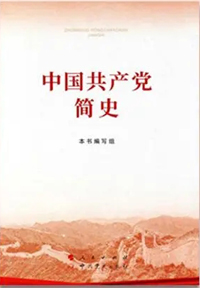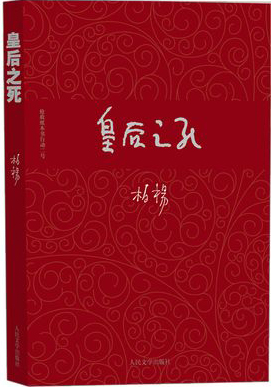“You”ll find him changed since you was here last, sir; but you”ll pretend you don”t notice anything, won”t you, sir? He”s that nervous about himself.”
Philip nodded, and she led him into the dining-room.
“Here”s Mr. Philip, sir.”
The Vicar of Blackstable was a dying man. There was no mistaking that when you looked at the hollow cheeks and the shrunken body. He sat huddled1 in the arm-chair, with his head strangely thrown back, and a shawl over his shoulders. He could not walk now without the help of sticks, and his hands trembled so that he could only feed himself with difficulty.
“He can”t last long now,” thought Philip, as he looked at him.
“How d”you think I”m looking?” asked the Vicar. “D”you think I”ve changed since you were here last?”
“I think you look stronger than you did last summer.”
“It was the heat. That always upsets me.”
Mr. Carey”s history of the last few months consisted in the number of weeks he had spent in his bed-room and the number of weeks he had spent downstairs. He had a hand-bell by his side and while he talked he rang it for Mrs. Foster, who sat in the next room ready to attend to his wants, to ask on what day of the month he had first left his room.
“On the seventh of November, sir.”
Mr. Carey looked at Philip to see how he took the information.
“But I eat well still, don”t I, Mrs. Foster?”
“Yes, sir, you”ve got a wonderful appetite.”
“I don”t seem to put on flesh though.”
Nothing interested him now but his health. He was set upon one thing indomitably and that was living, just living, notwithstanding the monotony of his life and the constant pain which allowed him to sleep only when he was under the influence of morphia.
“It”s terrible, the amount of money I have to spend on doctor”s bills.” He tinkled2 his bell again. “Mrs. Foster, show Master Philip the chemist”s bill.”
Patiently she took it off the chimney-piece and handed it to Philip.
“That”s only one month. I was wondering if as you”re doctoring yourself you couldn”t get me the drugs cheaper. I thought of getting them down from the stores, but then there”s the postage.”
Though apparently3 taking so little interest in him that he did not trouble to inquire what Phil was doing, he seemed glad to have him there. He asked how long he could stay, and when Philip told him he must leave on Tuesday morning, expressed a wish that the visit might have been longer. He told him minutely all his symptoms and repeated what the doctor had said of him. He broke off to ring his bell, and when Mrs. Foster came in, said:
“Oh, I wasn”t sure if you were there. I only rang to see if you were.”
When she had gone he explained to Philip that it made him uneasy if he was not certain that Mrs. Foster was within earshot; she knew exactly what to do with him if anything happened. Philip, seeing that she was tired and that her eyes were heavy from want of sleep, suggested that he was working her too hard.
“Oh, nonsense,” said the Vicar, “she”s as strong as a horse.” And when next she came in to give him his medicine he said to her:
“Master Philip says you”ve got too much to do, Mrs. Foster. You like looking after me, don”t you?”
“Oh, I don”t mind, sir. I want to do everything I can.”
Presently the medicine took effect and Mr. Carey fell asleep. Philip went into the kitchen and asked Mrs. Foster whether she could stand the work. He saw that for some months she had had little peace.
“Well, sir, what can I do?” she answered. “The poor old gentleman”s so dependent on me, and, although he is troublesome sometimes, you can”t help liking4 him, can you? I”ve been here so many years now, I don”t know what I shall do when he comes to go.”
Philip saw that she was really fond of the old man. She washed and dressed him, gave him his food, and was up half a dozen times in the night; for she slept in the next room to his and whenever he awoke he tinkled his little bell till she came in. He might die at any moment, but he might live for months. It was wonderful that she should look after a stranger with such patient tenderness, and it was tragic5 and pitiful that she should be alone in the world to care for him.
It seemed to Philip that the religion which his uncle had preached all his life was now of no more than formal importance to him: every Sunday the curate came and administered to him Holy Communion, and he often read his Bible; but it was clear that he looked upon death with horror. He believed that it was the gateway6 to life everlasting7, but he did not want to enter upon that life. In constant pain, chained to his chair and having given up the hope of ever getting out into the open again, like a child in the hands of a woman to whom he paid wages, he clung to the world he knew.
In Philip”s head was a question he could not ask, because he was aware that his uncle would never give any but a conventional answer: he wondered whether at the very end, now that the machine was painfully wearing itself out, the clergyman still believed in immortality8; perhaps at the bottom of his soul, not allowed to shape itself into words in case it became urgent, was the conviction that there was no God and after this life nothing.
On the evening of Boxing Day Philip sat in the dining-room with his uncle. He had to start very early next morning in order to get to the shop by nine, and he was to say good-night to Mr. Carey then. The Vicar of Blackstable was dozing9 and Philip, lying on the sofa by the window, let his book fall on his knees and looked idly round the room. He asked himself how much the furniture would fetch. He had walked round the house and looked at the things he had known from his childhood; there were a few pieces of china which might go for a decent price and Philip wondered if it would be worth while to take them up to London; but the furniture was of the Victorian order, of mahogany, solid and ugly; it would go for nothing at an auction10. There were three or four thousand books, but everyone knew how badly they sold, and it was not probable that they would fetch more than a hundred pounds. Philip did not know how much his uncle would leave, and he reckoned out for the hundredth time what was the least sum upon which he could finish the curriculum at the hospital, take his degree, and live during the time he wished to spend on hospital appointments. He looked at the old man, sleeping restlessly: there was no humanity left in that shrivelled face; it was the face of some queer animal. Philip thought how easy it would be to finish that useless life. He had thought it each evening when Mrs. Foster prepared for his uncle the medicine which was to give him an easy night. There were two bottles: one contained a drug which he took regularly, and the other an opiate if the pain grew unendurable. This was poured out for him and left by his bed-side. He generally took it at three or four in the morning. It would be a simple thing to double the dose; he would die in the night, and no one would suspect anything; for that was how Doctor Wigram expected him to die. The end would be painless. Philip clenched11 his hands as he thought of the money he wanted so badly. A few more months of that wretched life could matter nothing to the old man, but the few more months meant everything to him: he was getting to the end of his endurance, and when he thought of going back to work in the morning he shuddered12 with horror. His heart beat quickly at the thought which obsessed13 him, and though he made an effort to put it out of his mind he could not. It would be so easy, so desperately14 easy. He had no feeling for the old man, he had never liked him; he had been selfish all his life, selfish to his wife who adored him, indifferent to the boy who had been put in his charge; he was not a cruel man, but a stupid, hard man, eaten up with a small sensuality. It would be easy, desperately easy. Philip did not dare. He was afraid of remorse15; it would be no good having the money if he regretted all his life what he had done. Though he had told himself so often that regret was futile16, there were certain things that came back to him occasionally and worried him. He wished they were not on his conscience.
His uncle opened his eyes; Philip was glad, for he looked a little more human then. He was frankly17 horrified18 at the idea that had come to him, it was murder that he was meditating19; and he wondered if other people had such thoughts or whether he was abnormal and depraved. He supposed he could not have done it when it came to the point, but there the thought was, constantly recurring20: if he held his hand it was from fear. His uncle spoke21.
“You”re not looking forward to my death, Philip?” Philip felt his heart beat against his chest.
“Good heavens, no.”
“That”s a good boy. I shouldn”t like you to do that. You”ll get a little bit of money when I pass away, but you mustn”t look forward to it. It wouldn”t profit you if you did.”
He spoke in a low voice, and there was a curious anxiety in his tone. It sent a pang22 into Philip”s heart. He wondered what strange insight might have led the old man to surmise23 what strange desires were in Philip”s mind.
“I hope you”ll live for another twenty years,” he said.
“Oh, well, I can”t expect to do that, but if I take care of myself I don”t see why I shouldn”t last another three or four.”
He was silent for a while, and Philip found nothing to say. Then, as if he had been thinking it all over, the old man spoke again.
“Everyone has the right to live as long as he can.”
Philip wanted to distract his mind.
“By the way, I suppose you never hear from Miss Wilkinson now?”
“Yes, I had a letter some time this year. She”s married, you know.”
“Really?”
“Yes, she married a widower24. I believe they”re quite comfortable.”
第一百一十章
这一年的圣诞节适逢星期四,菲利普所在的那爿商店要打烊歇业四天。他给大伯去了封信,询问他去牧师住宅度假是否方便。他接到福斯特太太写来的回信,信中说凯里先生身体有恙,不便写信,但是他极想见见自己的侄儿,要是菲利普能来,他感到很高兴。福斯特太太在门口迎候菲利普,他俩握手时,她告诉他说:
"先生,你会发现他比你上次在这儿时变得多了。不过,你得装作若无其事,好吗,先生?他为自己的健康状况而神经十分紧张。"
菲利普点了点头。于是,她领着他走进餐室。
"菲利普先生到了,先生。"
这位布莱克斯泰勃教区的牧师已是病入膏盲,奄奄一息。他那凹陷的双颊、佝偻的躯体最清楚不过地说明了这一点。他坐在扶手椅里,身子缩成了一团,头部怪诞地向后仰着,肩上披了条围巾了。现在,他离了拐杖就寸步难行,两手颤抖得非常厉害,连用餐都十分艰难。
"他看来活不了多久了,"菲利普一边望着他,一边暗自思忖着。
"你觉得我现在的气色怎样?"牧师问道,"你认为我比你上次在这儿的时候变多了吗?"
"我看,你现在身板比去年夏天要硬朗得多。"
"那是因为天气热的缘故。气温一高,总叫人受不了。"
在上几个月中,有好几个星期,凯里先生是在楼上卧室里度过的,其余几周的时光是在楼下消磨的。他手边有个手摇铃,说话的当儿,他摇铃叫福斯特太太来。福斯特太太就坐在隔壁房间里,时刻准备着听从凯里先生的召唤。他问福斯特太太他第一天走出卧室是哪个日子。
"十一月七日,先生。"
凯里先生两眼盯视着菲利普,看他听后有何反应。
"但是,我的胃口还是不错的,不是吗?福斯特太太,你说呢?"
"是的,先生,你的胃口好极了。"
"不过,就是吃了不长肉。"
眼下,除了他本人的健康,其余什么都不在他心上。他的生活单调乏味,不时遭到病痛的袭击,只有在吗啡的麻醉下,他才能合上眼睛睡一会儿。尽管如此,他却执拗地、念念不忘地想着一件事:活下去!只要眼睁着活在人世就好!
"太糟了,我得开支一笔数目庞大的医药费。"他又了丁当当地摇响手铃。"福斯特太太,把药费帐单拿给菲利普瞧瞧。"
福斯特太太立即从壁炉架上取下药费帐单,并把它递给了菲利普。
"这仅仅是一个月的帐单。即使你来给我看病,我也怀疑你能否叫我少付些药费。我曾想直接从药房里买药,但这又要支付邮费。"
他明显地对自己的侄儿不大感兴趣,竟连菲利普目前在干些什么也没有想到问一声。但看上去,他因有菲利普在自己跟前而感到很高兴。他问菲利普能呆多久,菲利普回答说他星期一二一定得动身,这时,他表示要是菲利普能多呆些日子就好了。他絮聒不休地诉说起自己病痛的症状,以及医生对他病情的诊断。他突然打住话头,摇起了手铃。福斯特太太应声走了进来。他说:
"喔,我不知你还在不在隔壁。我打铃只是想知道你是否在那儿。"
福斯特太太走后,他对菲利普解释说,要是他不能肯定福斯特太太是否在附近,他就会感到惶惶不安,因为他一旦有个三长两短,福斯特太太知道她该做些什么。菲利普发觉福斯特太太疲惫不堪,眼皮因缺乏睡眠而沉重得抬不起来。他便暗示大伯,说他让福斯特太太太操劳了。
"瞎讲,"这位牧师说,"她壮得像头牛。"后来,当福斯特太太进来给他送药时,他对她说:
"菲利普少爷说你太操劳了,福斯特太太。你喜欢照顾我,不是吗?"
"喔,我没关系,先生。凡是我能做的事情,我都愿意去做。"
没一刻儿工夫,药剂生效了,凯里先生便昏昏入睡了。菲利普走进厨房,问福斯特太太终日操劳是否吃得消。他看出她接连数月都没有得到安宁。
"嗯,先生,我又有什么法子想呢?"她回答道,"那位可怜的老先生一切都仰赖着我去给他张罗。哎,虽然有时他真叫人讨厌,但是,你又舍不得离开他,这有什么办法呢?我在这儿已呆了那么多年了,要是他一旦狠心走了,我真不知该怎么办才好哩。"
菲利普看到她确实怜爱着这个老头儿。她帮他洗澡穿衣服,给他做饭,甚至一夜都要起来五六次,因为她就睡在他隔壁房间里。每当他醒来,他总是丁丁当当地摇铃,直到她走进他的卧室为止。他随时都可能咽气蹬腿,然而他也许还可以苟延残喘几个月。她居然这样百依百顺地、心肠仁慈地照料一位陌生人,着实令人叹服。诚然,世上就只有她这样一位孤苦伶灯的老太婆料理着他,看了又叫人悲伦和心酸。
在菲利普看来,大伯终生布道的宗教,现在对他说来,不过是履行一种形式而已:一到星期六,教区副牧师来到他面前,给他吃圣餐,而且他自己也经常吟诵《圣经》;然而,很清楚,他还是怀着极其恐惧的心情看待死k。他信奉死亡就是通向来世永恒幸福的入口,但是他自己却不想进去领略那种幸福生活的乐趣。他不时地遭受病魔的折磨,像是被铁链缚住一样,成天价在椅子里消磨时光。但是,他却像紧紧依偎在一个他用钱雇来的女人的怀抱里的孩童一样,赖在他所熟识的尘世不肯离去。
菲利普的脑海里始终盘旋着一个他不好发问的问题:他怀疑这位牧师在其垂暮之年,是否还笃信灵魂不灭之说,而眼下他就如同一部机器一样,久遭磨损,行将报废。很可能在他的灵魂深处,深信宇宙间压根儿就不存在什么上帝,深信今世一了,万事皆空。不过,不到万不得已,他是决不会说出这一信念的。但他不好发问,因为他知道,大伯的回答除老生常谈外,决不会有什么新鲜货色。
节礼日那天傍晚,菲利普同他大伯一起坐在餐室里。翌日一大早他就得动身,赶在上午九时前返回店里。这时,他是来给凯里先生道别的。那位布莱克斯泰勃教区的牧师正在打盹儿,菲利普躺在靠窗的沙发上,书本跌落在膝盖上,目光懒散地打量着房间的四周。他盘算着房间里的家具能卖多少钱。他曾在这幢房子里倘佯,察看那些打孩提时代起就熟知的各色什物。家里有几件瓷器,倒还值几个钱,菲利普暗自忖度着这些瓷器是否值得带上伦敦;至于那些家具,还都是维多利亚女王时代的款式,红木质地,结实而丑陋,拿去拍卖的话,就三文不值两文了。家里还有三四千册藏书,不过谁都知道,这批书是卖不了几个钱的,很可能不会超过一百英镑。大伯究竟能给他留下多少钱财,菲利普不得而知,然而他却已是第一百次地掐算他至少还需多少钱,才能支付自己修完医学院的课程、取得学位、维持在受医院的聘书前一段日子的生活所需的费用。他两眼望着那个老头儿,辗转反侧,夜不成眠。他那张布满皱纹的脸上没有一丝人性;那是一张神秘莫测的动物的面孔。菲利普心想,要结果那条卑贱的生命该是多么的容易。每天傍晚,当福斯特太太伺候他大伯服用使他安静地度过夜晚的药剂时,他都这么想过。那里摆着两只瓶子:一只瓶内装有他定时服用的药物;另一只瓶内装有鸦片剂,只有当疼痛难以忍受时才服用。这种鸦片剂倒好后摆在他的床头边,他一般在凌晨三四点钟吞服。倒药时加大剂量,不屑举手之劳,他大伯就会在夜间死去,而且任何人都不会有所怀疑,因为威格拉姆大夫希望他这样死去,而他本人也毫无痛楚。菲利普一想到自己手头拮据、极需用钱,便情不自禁地攥紧拳头。再过几个月的那种悲惨生活,对这个老东西来说是无关紧要的,而对他菲利普来说,却意味着一切。他快到了无法忍受的地步。想起翌日凌晨又要重返商店卖命,他感到极其惊恐,不寒而栗。他一想起那个充斥着他脑海的念头,他那颗心便怦怦直跳。虽然他极力想把那个念头从自己的脑海中排遣出去,但无济于事。结果这个老头儿的生命真是易如反掌,不费吹灰之力。菲利普对这个老东西毫无感情,从来就不喜欢他。他大伯一辈子都很自私,甚至对敬慕他的妻子也同样如此,对托他抚养的孩子漠不关心;他这个人虽然说不上残酷无情,但是愚昧无知,心如铁石,又有点儿耽于声色。结果这个老头儿的生命真是易如反掌,不费吹灰之力。但菲利普不敢去做。他害怕追悔莫及,倘若他终生筷恨他所做的事情,那么有钱又有什么用处呢?尽管他经常告诫自己,懊悔是徒劳无益的,但还是有几件事情偶尔闯进他的心灵,搅得他心绪不宁。他但愿这些事情不负自己的良心。
他大伯睁开了眼睛,菲利普感到高兴,因为那样他看上去有点儿像人的模样了。当想到一度在脑际闪过的念头时,他着实感到惊悸,他所考虑的是谋财害命啊!他怀疑旁人是否有过类似的想法,还是自己反常、邪恶。他想,到了真要动手的时候,他也决不可能去做这种事情,但这种念头确确实实是有的,还不时地浮现在自己的脑海里,如果说他手下留情,那完全是出于畏惧心理。他大伯开腔说话了。
"你不是在巴望我死吧,菲利普?"
菲利普感觉到自己的心在胸腔里剧烈地跳动。
"哎呀,没有的话!"
"那才是个好孩子。我可不欢喜你存有那样的想法。我死后,你可以得到一笔数目不大的金钱,但你不能有所指望。要是你那样想的话,那就没你的好处。"
他说话声音很低,语调中流露出一种异乎寻常的惶恐不安。菲利普的心陡然感到一阵剧痛。他暗自纳闷,究竟是什么样的奇怪的洞察力,使得这个老家伙能猜测到他心中的邪念呢?
"我祝你再活上二十年,"菲利普说。
"哦,我可不指望还能活那么久。不过,只要我注意保养身体,我不相信我就不能再活它三年五载的。"
他沉默了一会儿,而菲利普也无言以对。接着,这个老头儿似乎作了番考虑后又说开了。
"谁都有权能活多久就活多久。"
菲利普希望转移自己的思绪。
"顺便提一下,我想你从没有收到过威尔金森小姐的信吧?"
"喔,不,今年早些时候,我还接到她一封信哩。她已经结婚了。你知道吗?"
"真的吗?"
"是真的。她同一位鳏夫结了婚。我相信他们的日子一定很美满。"







